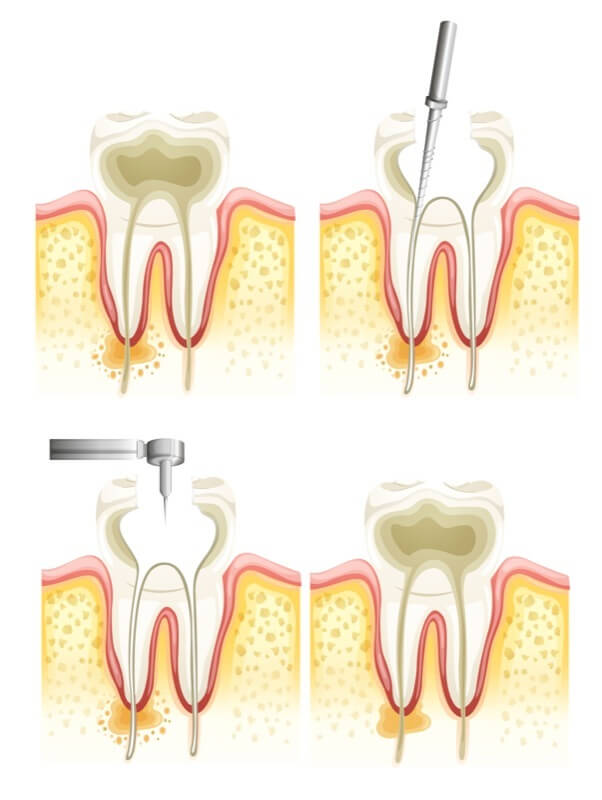An endodontist performs specialized procedures on teeth in a unique field of dentistry. You may consider booking a consultation if you are in pain or receive a referral from a dentist. Here’s what an endodontist does, the procedures they perform, and why they are needed in oral health care:
Difference Between Endodontists and Dentists
Dentists provide primary dental care including cleanings, fillings, and additional treatments. Endodontists are specialists in the inner part of the tooth, known as the pulp, which includes nerves and blood vessels. They handle more complex tooth-related issues, usually after the patient is referred by a general dentist.
Common Endodontistry Procedures
An endodontist can handle a variety of procedures, most of which address more serious issues in the teeth, including the following:
1. Root Canal Therapy
The most common and well-known procedure, root canals, involve removing infected or damaged pulp tissue from the tooth to relieve pain and save the natural tooth structure. Modern techniques and technology aim to improve the quality of patient visits. A tooth that has undergone a root canal may not heal as expected or develop new issues. A clinic can provide retreatment by reopening the tooth, addressing the issue, and sealing it again for better results.
2. Traumatic Dental Injury Treatment
Endodontists specialize in saving teeth that have been dislodged, fractured, or otherwise injured due to trauma. They can also reattach teeth that have been knocked out if the procedure is done quickly. An intervention can preserve your natural smile. For cases that may require more advanced care, such as small infections or damage that a standard root canal cannot resolve, endodontists perform surgeries to remove infections and repair roots.
3. Additional Endodontics
Endodontists perform a variety of other tasks. Regenerative treatment focuses on repairing damaged or lost pulp tissue, particularly in younger patients. For sudden pain or injuries, endodontists can also provide immediate care to relieve discomfort and prevent further damage.
Referrals From a Dentist
Your general dentist may refer you to an endodontist if you have tooth pain or sensitivity that isn’t resolving with regular dental care. Chronic inflammation, infections, or past trauma to a tooth may also warrant specialized care. Referrals are often made so you receive the best possible treatment for complex dental issues that go beyond traditional care methods.
Why Seeing an Endodontist Matters
Specialized care from an endodontist not only addresses severe dental issues but also saves your natural tooth whenever possible. It’s an alternative to implants and other tooth replacements. Preservation of your natural, original teeth is generally recommended by clinics in this field for long-term oral health and longer-lasting teeth.
Schedule a Consultation with an Endodontist
Clinics combine newer, advanced techniques with compassionate care in order to make procedures as efficient, minimally invasive, and comfortable as possible. If you’re experiencing severe tooth pain or have been advised to see a specialist, don’t hesitate to book a consultation. Visit a clinic to help relieve pain, manage dental emergencies, and preserve your smile as well as your original teeth.
You may also read: Role of Veneers and Implants
